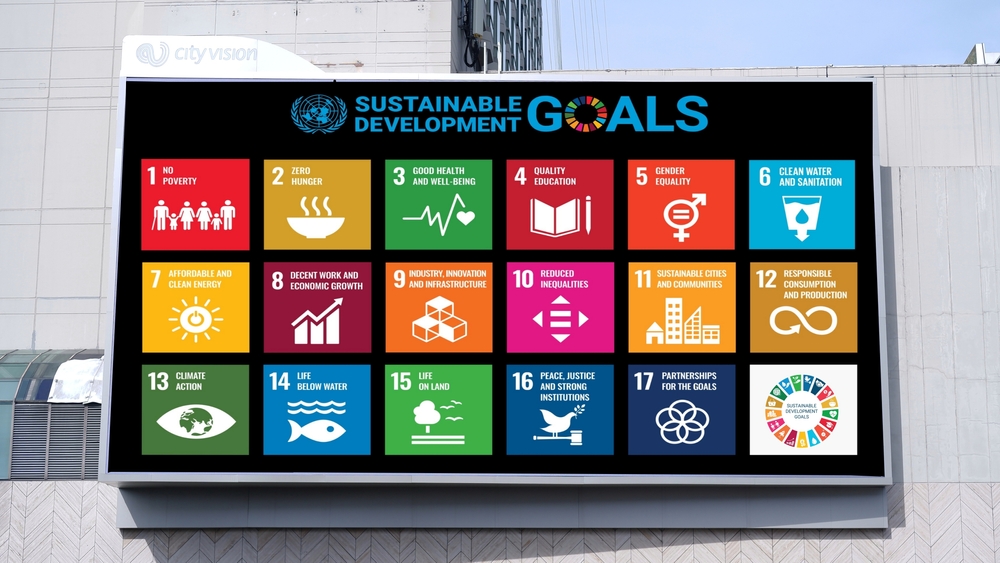In association with the UK Foreign, Commonwealth and Development Office
Executive summary
Turbocharging the SDGs requires three key components: working in partnership to deliver more money, better spent. Resource constraints are a significant barrier to making progress and this cannot be underestimated. The OECD estimates there is a USD 3.9 trillion funding gap annually to achieve the SDGs by 2030. But with six years to go, it is also critical that resources are focused on transformative actions to deliver the SDGs, maximising the synergies across the framework. The multiple development-focused international summits in 2024 and beyond are an opportunity to drive momentum on achieving the SDGs and champion initiatives and policy solutions that turbocharge delivery.
Partners from around the world, including governments, advisers, think tanks, academics and civil society discussed these pressing challenges and how to truly accelerate SDG progress. The conference afforded a rare opportunity to have candid, collaborative conversations, with participants valuing the space to discuss, share and reflect with a range of passionate SDG actors. The SDGs are an interconnected framework and many ways of accelerating their delivery were discussed, but three prevalent themes were identified: leadership, financing, and innovation.
Setting the scene
Two years after their mid-way point, the SDGs are severely off track. Many countries feel anger and/or disappointment at the lack of progress. Despite the challenges and shocks of the last few years, at the UN General Assembly in September 2023 the world unanimously recommitted to the SDGs. The SDG framework continues to be recognised as the collective vision of the world we all want to see and provides a common language to describe our efforts. The power of this shared aim in a world that feels increasingly divided should not be taken for granted.
“The world doesn’t agree on many things but it does agree on the SDGs.”
The huge development gains since the 2000 Millennium Declaration must not be forgotten and must spur us on at this critical juncture, with a laser focus on accelerating SDG delivery. Everyone having a part to play, governments, academia, businesses, and civil society must come together as partners to rescue this common vision, driving momentum and amplifying success stories.
SDG Success Stories
Looking at the global picture, progress across the Goals is not equal across geographies and income groups. Higher income levels, along with a functioning and stable state that uses resources for the benefit of its population, are two critical factors in SDG progress. The nature and impact of public spending matter as much as the level of spend. Public spending is most effective when shaped by evidence and research. Innovation and rising productivity are key to sustainable, inclusive economic growth that does not exacerbate climate risk or increase inequality.
There are multiple international initiatives which aim to accelerate SDG delivery. The UN’s High Impact Initiatives identify six key transitions that have a multiplier effect across the SDGs. The UN SDSN’s Transformations work also identified six areas for immediate SDG action. The SDG Synthesis Coalition produces rigorous syntheses, systematically collating evidence on how to progress the SDGs. Other non-UN led initiatives, such as ONE’s accelerators, similarly look at how to turbocharge SDG delivery. Consistent themes across many of these initiatives are gender equality, climate action, education, and technology. These initiatives shine a spotlight on the need to accelerate SDG delivery, though they can present challenges as actors are not clear if/how the initiatives are interconnected or complimentary, and whether they have a strong evidence base.
Sharing success stories and lessons learnt from different country contexts helps build both a shared understanding and the evidence base on what works to deliver the SDGs. The following four country case studies illustrate outstanding examples of national and local actions. Common learnings and best practice across the case studies demonstrate the importance of mainstreaming SDGs across national development plans and budgets, integrating SDGs into national and local governance processes, and civic, private sector and local community engagement. In many cases, developing countries have been highly successful in mainstreaming SDGs at national, regional and local levels. Recognising the universality of the SDGs, other countries including developed countries, may consider enacting similar policies and approaches.
